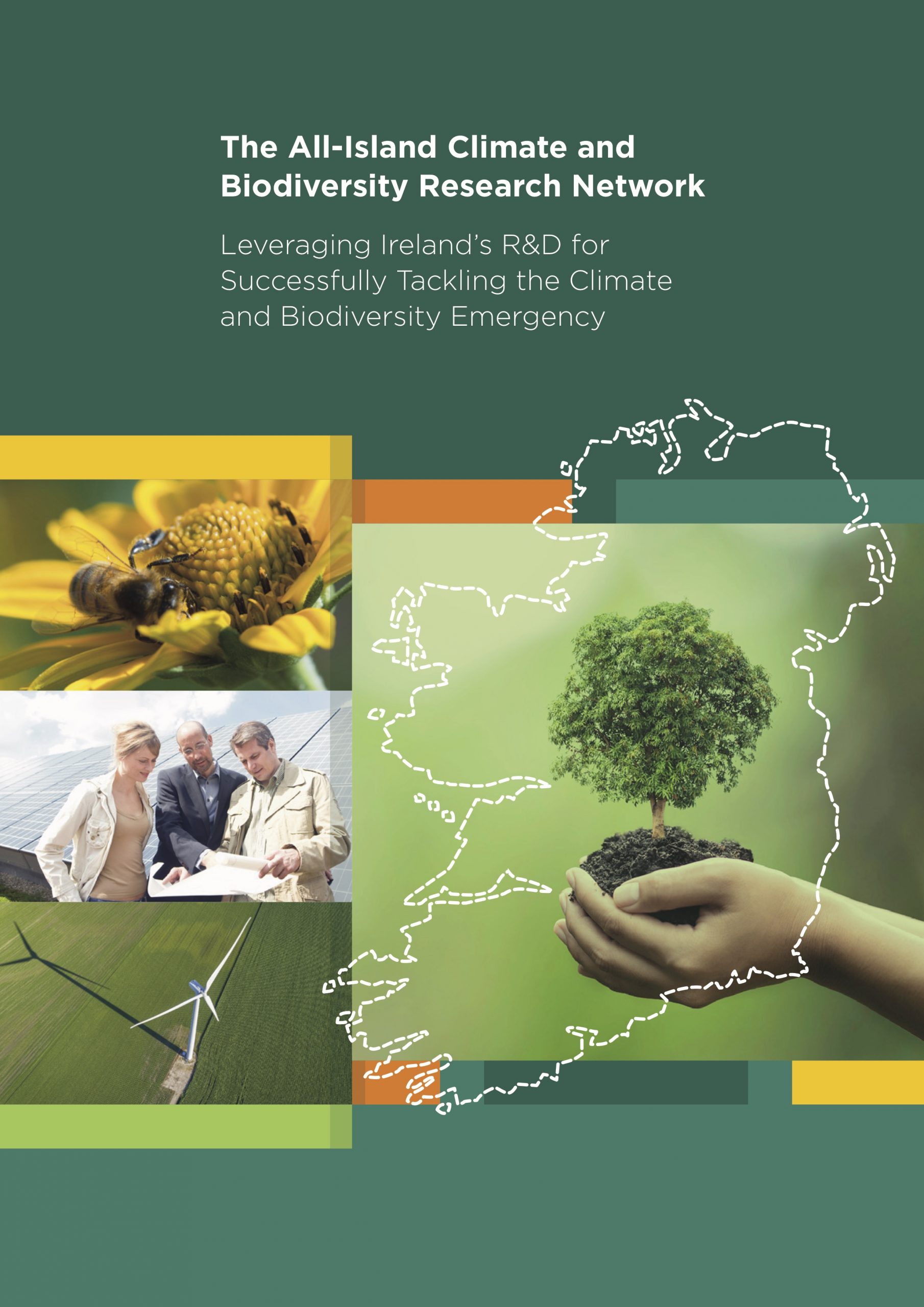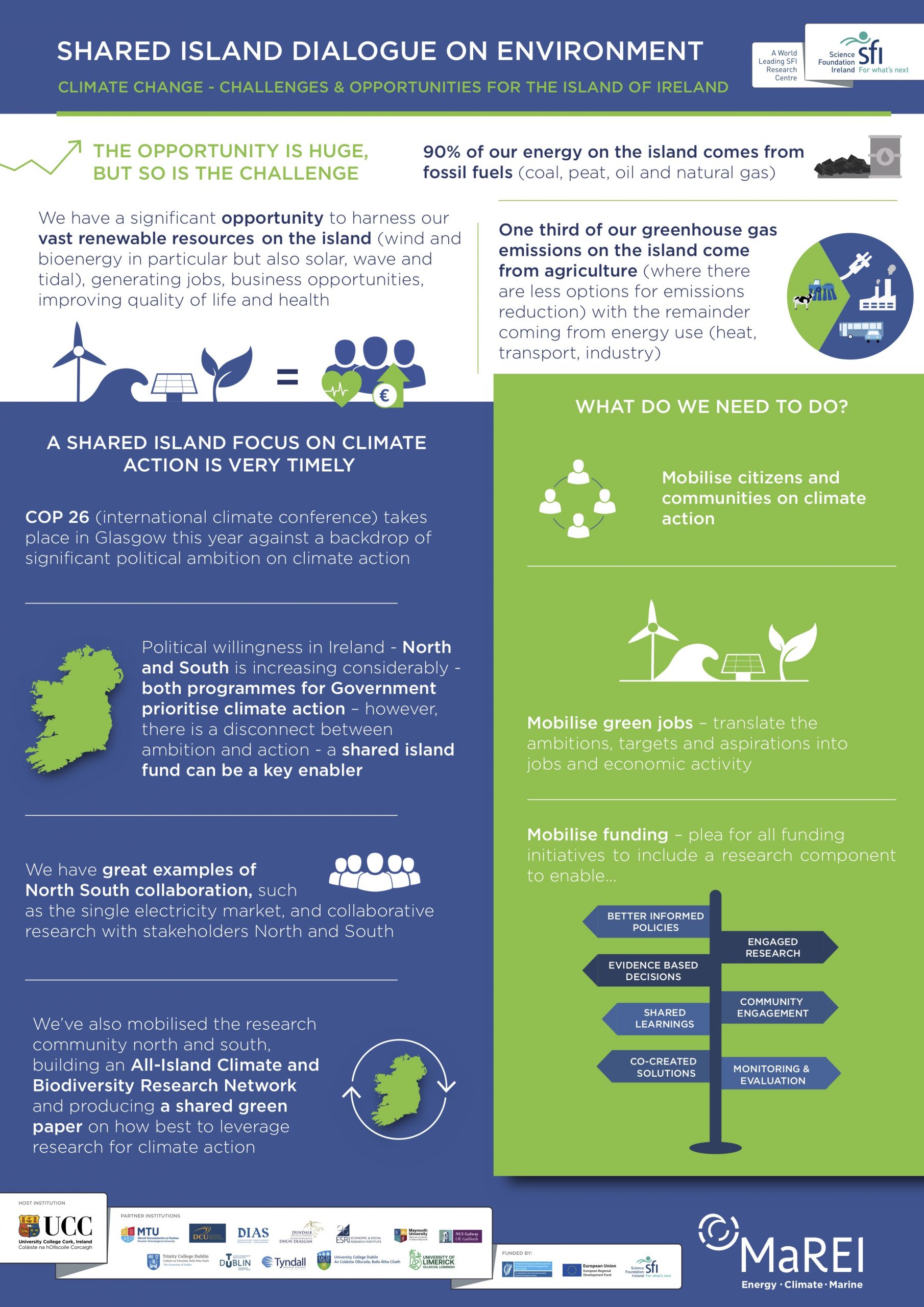
All-Island Climate and Biodiversity Research Network
The AICBRN is in a unique position to further bring together academia, government and industry from across the island of Ireland to be a strategic and accountable voice for evidence-based solutions for Climate and Biodiversity.

MaREI is part of the new All-Island Climate and Biodiversity Research Network (AICBRN). This major initiative brings together leading research centres across the whole island of Ireland to tackle the climate and biodiversity emergency where a trans-national approach is essential.
Researchers from all of the centres across the network have come together to work with national, regional and local governments, communities and industry to effectively deliver solutions to climate, biodiversity and social challenges caused by global warming.
‘The ambition of the AICBRN is to develop a large-scale research and innovation initiative to improve public good policy and management decisions, underpin business and enterprise strategies and strengthen societal capacity to address the climate and biodiversity emergencies’
We will be investigating:
-
Clean energy solutions and how to economically implement these to achieve a socially just transition away from fossil fuels
-
Prevention of biodiversity loss, reversing degradation in ecosystems and how to make our natural environment more resilient to climate change
-
Protecting and enhancing agriculture in Ireland and looking to achieve negative carbon emissions
-
Improving climate predictions and the level of uncertainty to improve forecasting of adverse weather and flood risk
Full details are available in the report.
Shared Island Dialogue on The Environment and Climate: Addressing Shared Challenges - Feb 5 2021

Topic 1: Climate Change – Opening Remarks – Brian Ó Gallachóir
1. The opportunity is huge, but so is the challenge
a. We have a significant opportunity to harness our vast renewable resources on the island (wind and bioenergy in particular but also solar, wave, and tidal), generating jobs, business opportunities, improving quality of life and health.
b. Currently, however, about 90% of our energy on the island comes from fossil fuels (coal, peat, oil, and natural gas)
c. We also have a high proportion (one third, the remainder coming from energy) of our greenhouse gas emissions on the island coming from agriculture (where there are less options for emissions reduction)
2. A shared island focus on climate action is very timely
a. COP 26 (international climate conference) takes place in Glasgow this year against a backdrop of significant political ambition on climate action e.g. US + China
b. Political willingness in Ireland – North and South is increasing considerably – both programmes for Government prioritise climate action – however, there is a disconnect between ambition and action) – shared island fund can be a key enabler
c. We have great examples of North South collaboration,
i. Single electricity market – the highest level of wind on a synchronous globally
ii. Also in research .e.g. from MaREI with QUB
1. CREDENCE project with on the future of energy systems
2. Imagining 2050 on how to engage with citizens to co-create future visions
3. DIIS – on the significant innovation required across different institutions
d. We’ve also mobilised the research community north and south, building an All-Island Climate and Biodiversity Research Network and producing a shared green paper on how best to leverage research for climate action and biodiversity
3. What do we need to do?
a. Mobilise citizens and communities on climate action – building on experiences in the Dingle Peninsula 2030 project and the Belfast Climate Commission look to examples such as the scale-up significantly climate action and climate research – in parallel
b. Mobilise jobs – translate the ambitions, targets, and aspirations into jobs and economic activity – energy efficiency, upgrading buildings, wind energy, renewable gas, hydrogen, renewable liquid fuels solar power, also key opportunities in bioenergy,
c. Mobilise funding – plea for all funding initiatives to include a research component – ensures the best use of up to date knowledge, co-created solutions, better informed policies, engaged and action research with communities, monitoring, and evaluation to harvest and share the learnings.
Brian Ó Gallachóir is Professor of Energy Engineering at UCC and Director of MaREI, the SFI Research Centre for Energy, Climate and Marine. He is also a co-founder of the All-Island Climate and Biodiversity Research Network. Brian leads MaREI’s research on building and using energy systems models that have underpinned Irish and EU energy and climate mitigation policies and Irish energy company strategies. He is also MaREI’s Education and Public Engagement Champion and received the Science Foundation Ireland Best International Engagement Award in 2020. Brian is elected Chair of International Energy Agency Technology Collaboration Programme on energy systems modelling (IEA-ETSAP) and an elected Fellow of the Irish Academy of Engineering. Brian has published extensively (over 110 journal papers and h-index of 42), has a B.Sc. from TCD and a PhD from UCC.



